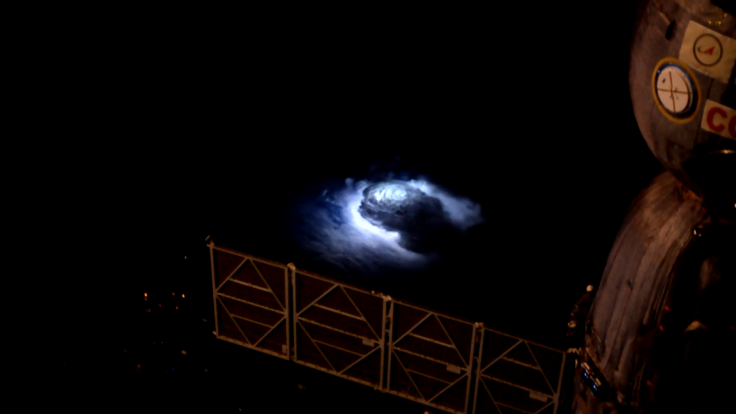Did Russians find aliens on the ISS? Cosmonauts claim they found bacteria that wasn't there before
Russia says the samples were tested and found to be safe, and will be brought down to Earth for tests.

Living organisms have reportedly been found on the hull of the International Space Station (ISS) and they might not have originated from the Earth.
Russian cosmonaut Anton Shkaplerov said that the living microorganisms were in the form of bacteria. He added that the samples will be brought down to Earth to be studied.
"Bacteria that had not been there during the launch of the ISS module were found on the swabs. So they have flown from somewhere in space and settled on the outside hull," Shkaplerov, an expedition flight engineer who is set to take his third trip to the space station in December as part of the Expedition 54, told Russian news agency Tass.
The cosmonaut added that during spacewalks, cotton swabs are used to take samples near the point where fuel wastes are discharged from the engine and places where the station surface is obscure. The samples are then brought to Earth for further study. It was during the routine swab collection, they came across the never-before-seen bacteria samples, he noted.
"It has turned out that somehow these swabs have revealed bacteria that were absent during the launch of the ISS module," he said. He added that the samples seemed to be safe as of now and were being studied.
He noted that previously, some microorganisms from the Earth were found to have survived in the vacuum of space and even through temperature fluctuations ranging -150C to 150C.
An RT report mentions that these Earth-origin bacteria entered special pads that were placed on the hull as part of an experiment to see how the organisms survived the harsh conditions of outer space. The tests were carried out as "Biorisk" experiments.
The report mentions that traces of Earth bacteria from Madagascar, as well as plankton from the Barents Sea were found on the pads in May. This was explained by scientists as being caused by the "ionosphere lift phenomenon". This happens when microorganisms are lifted up from the surface into high altitudes, sometimes even to the upper atmosphere, according to RT news.
Roscosmos, backed by a number of other scientists have reportedly called to lift the definition of "biosphere" from 20 km to 400 km after Earth bacteria was found on the test pads.
There is a prevailing theory that life on Earth was caused by microorganisms travelling through space in streams of interplanetary dust.
While IBTimes UK was unable to independently verify if the Russians actually found alien bacteria on the ISS or not, there might be room for speculation on its plausibility.





